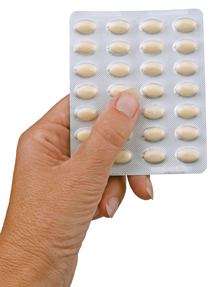‘Rights, privileges and responsibilities appertaining thereto’
An internal medicine resident reflects on his recent graduation, a cross-country move and the new responsibilities he now carries.
A few months ago, I walked across a stage and received a sheet of validation, a paper representing the culmination of four years of hard work. There were handshakes, smiles and pictures with loved ones. There were reflections on the past, exhortations for the future and final hugs with classmates. And there were those small words inked firmly under my “Doctor of Medicine” degree: with all the rights, privileges and responsibilities appertaining thereto.
Those words, of course, refer to the commitment I promised to uphold for the rest of my career. They pertain to the ethics of my approach to people and sickness, to the tension between the privileges and responsibilities of practicing medicine. As I swore my oath, the thought of entering into that balance filled me with excitement and fear.
A great deal has changed since that night. I packed everything into several small bags and moved across the country. I completed boundless training and memorized the Advanced Cardiovascular Life Support manual so that when called upon, I would meet my professional charge with high-quality chest compressions and patient management. I cleaned my stethoscope and pressed my pants. Then one day, without the intensity or buildup I'd imagined for so long, I walked through sliding doors and became a physician.
Externally, things felt different almost immediately. Staff called me “Doctor,” and nurses acted on my input with confidence. When I entered orders, I wasn't prompted for a co-signer. Medical students came to me for guidance, and people passed me in the hall without staring at my white coat, reminding me of its added length. My hand started moving automatically toward my beeper, even when I knew it wasn't mine going off. I executed treatment plans, and contrary to my worst (and perhaps most exaggerated) fears, my patients survived, and even improved.
Internally, however, something lingered unchanged. My rotations were teaching me the importance and excitement of internal medicine, and I enjoyed the steep learning curve. But inside, part of me still felt like the student standing on stage, intent on upholding the integrity of my profession without fully knowing what that would require. In those first days, I wondered if new titles, beepers, coats and order-writing privileges would be enough to transform me meaningfully, or if I would remain the same within, filled with anticipation and uncertainty.
The transition from medical school to internship can be challenging. Expectations shift abruptly between medical school and intern year. One day, we are student-doctors whose suggestions are checked and edited by others; the next, we are physicians whose knowledge and decisions dictate the majority of patient care. Moreover, we are suddenly responsible for nonclinical aspects of medicine. We are inundated with information about documentation, billing and workflow—elements that while important feel remote and foreign. Perhaps most important, our personal time declines as responsibilities spike. This can make it difficult to step away and take inventory of our thoughts, of how our feelings shift, swell and recede in the first days of internship.
Ultimately, the transition will always be formidable and accompanied by anticipation and fear. However, instead of simply “pushing through it” or only peripherally recognizing how surreal it is, I believe interns can learn unique lessons about themselves during this period.
Before I became an MD, I received the collective influence, guidance and encouragement of my mentors and loved ones. They have long expected uncompromising diligence, honesty and compassion from me as a friend, family member and medical student; they will continue to expect the same through internship and beyond. Remembering that trajectory—from where our loved ones, mentors and program directors know we've come, to where they fully believe we'll one day arrive—can temper the anxiety that accompanies the transition into residency.
As new interns, we are frequently learning as much about hospital systems, workflow and team cultures as we are about patients and their pathophysiology. This can create competing needs and stark departures from our experiences as students. But because we are so acutely aware of how unseasoned we are, and because our experience and knowledge so obviously lag behind our physical presence, those first patient encounters can hold profound lessons. On my first rotation, I blocked off 10 minutes to spend with each patient at the end of each day and another 15 minutes to read about their conditions, hoping to begin setting the tone for my future practices as supervisor and educator. While such efforts will vary across individuals and rotations, a commitment to creating strong habits now can increase our confidence and comfort with newfound privileges and responsibilities.
The transition from student to intern is a unique, once-in-a-lifetime experience. For many, as for me, it will demand great measures of the mind and heart. But to handle the transition well, I believe we must push beyond the surface of our positions. In addition to learning the tasks required of physicians, we could benefit from intentionally reflecting on our trajectories and diligently building strong habits early on.
With those goals in view, the transition will mean far more than longer white coats, added order entry privileges, and increased clinical experience. It will be a regular, beautiful encouragement of where we've been and where we're going, with all the rights, privileges and responsibilities appertaining thereto.




